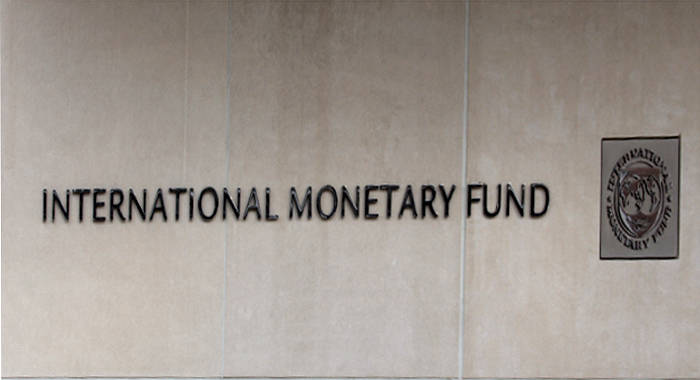The International Monetary Fund (IMF) has approved a disbursement of US$6.4 million for St. Vincent and the Grenadines to help the country meet “an urgent balance-of-payments need” due to severe flooding and landslides last December that killed at least nine persons and caused massive damage to infrastructure, housing and agriculture.
The funds are to be drawn equally from the Rapid Credit Facility (RCF) and the Rapid Financing Instrument (RFI), the IMF said in a release on Friday.
Emergency relief and high rehabilitation costs after the flood “have weakened the fiscal position and created an urgent balance of payments need at a time when the economy is striving to recover from previous natural disasters and the global economic downturn,” Min Zhu, deputy managing director and acting chair, of the IMF’s Executive Board’s said.
“Rehabilitation and reconstruction spending is expected to widen the fiscal deficit this year,” Zhu further said in an IMF press release.
“Mindful of the high and growing public debt, the authorities have reiterated their intention to rely mainly on grants and concessional resources to finance the recovery. At the same time, they will step up their efforts to mobilize budgetary resources by increasing revenue collection, containing the wage bill, and reducing transfers to state-owned enterprises.”
Zhu said the Gonsalves government remains committed to securing a sustainable fiscal position.
“To this end, they intend to generate a primary surplus of at least 2 per cent of GDP in the medium term to ensure that the debt-to-GDP ratio is put on a declining path.
“The authorities are also stepping up structural reforms to enhance resilience to natural disasters and climate change, and to ensure strong and lasting growth. They are developing programmes to improve emergency responses and to strengthening physical infrastructure.
“Efforts are also on-going to enhance the business environment, improve access to the country by air, and streamline customs clearance. The authorities also intend to carry out civil service and pension reforms, which will boost competitiveness and employment,” Zhu further said.
Prime Minister Ralph Gonsalves said last month that the monies are “not part of any fund programme but to get resources in relation to our quota or what we can draw down from our special drawing rights in relation to, for instance, natural disasters”.
Gonsalves, who is also Minister of Finance, said he had asked for 25 per cent of the nation’s quota under the Rapid Credit Facility, which has a five-year repayment period with three and a quarter years grace period at 1.13 per cent interest.
The extreme weather last December left EC$330 million (17 per cent of GDP) in loss and damage.







The IMF, World Bank, and many other international lending and aid agencies generally do more harm than good since they encourage both economic dependency and reckless spending in places like SVG.
All over the world, there is much evidence that much of what is lent or freely given ends up in the hands of the elite or is squandered on useless projects. The billions given to Africa over the past 50 years, for example, have only exacerbated local poverty while lining the pockets of crooked politicians and their hangers-on (see Dambisa Moyo’s book “Dead Aid: Why Aid is Not Working and Why There is a Better Way for Africa”).
Many grant agencies, knowing this, are increasingly funding small-projects aimed at making people self-reliant which are run by honest grass-roots organizations rather than throwing block-funding at corrupt government functionaries who use the money to buy influence (e.g., votes during elections) or enhance their own wealth.
Mindful of the high and growing public debt, the authorities have reiterated their intention to rely mainly on grants and concessional resources to finance the recovery. At the same time, they will step up their efforts to mobilize budgetary resources by increasing revenue collection, containing the wage bill, and reducing transfers to state-owned enterprises. WORRIES. “increasing revenue collection”- VAT/import duties. “containing the wage bill”- no jobs/layoffs. “reducing transfers to state-owned enterprises”- roads/hospital/schools suffering more.
Election money?
Structural adjustments, wage and job freezes nicely packaged.
In the ULP column last week’s newspapers, the PM proudly boasted that he had secured EC $1.4 in foreign aid and loans since he became leader in 2001.
For many development experts, this would be viewed as a matter of grave concern because of the negative effects of such a massive amount of aid and loans.
Nationally, it should be viewed with shame, not pride, not only because it starkly shows how badly the national economy is doing but because it (1) increases dependency on others and a sense of impotence at home, (2) relieves the government from doing anything but beg and borrow, (3) increases the national debt, (4) depresses the incentive for local-level entrepreneurship, (5) encourages the mass out-migration of the best ands the brightest of our people, (6) produces many white elephants (including the new airport), and (7) invites official and other corruption.
These unintended consequences are real and they are devastating. But they are avoidable, unless of course we assume that St. and the Grenadines represents a hopeless basket case.